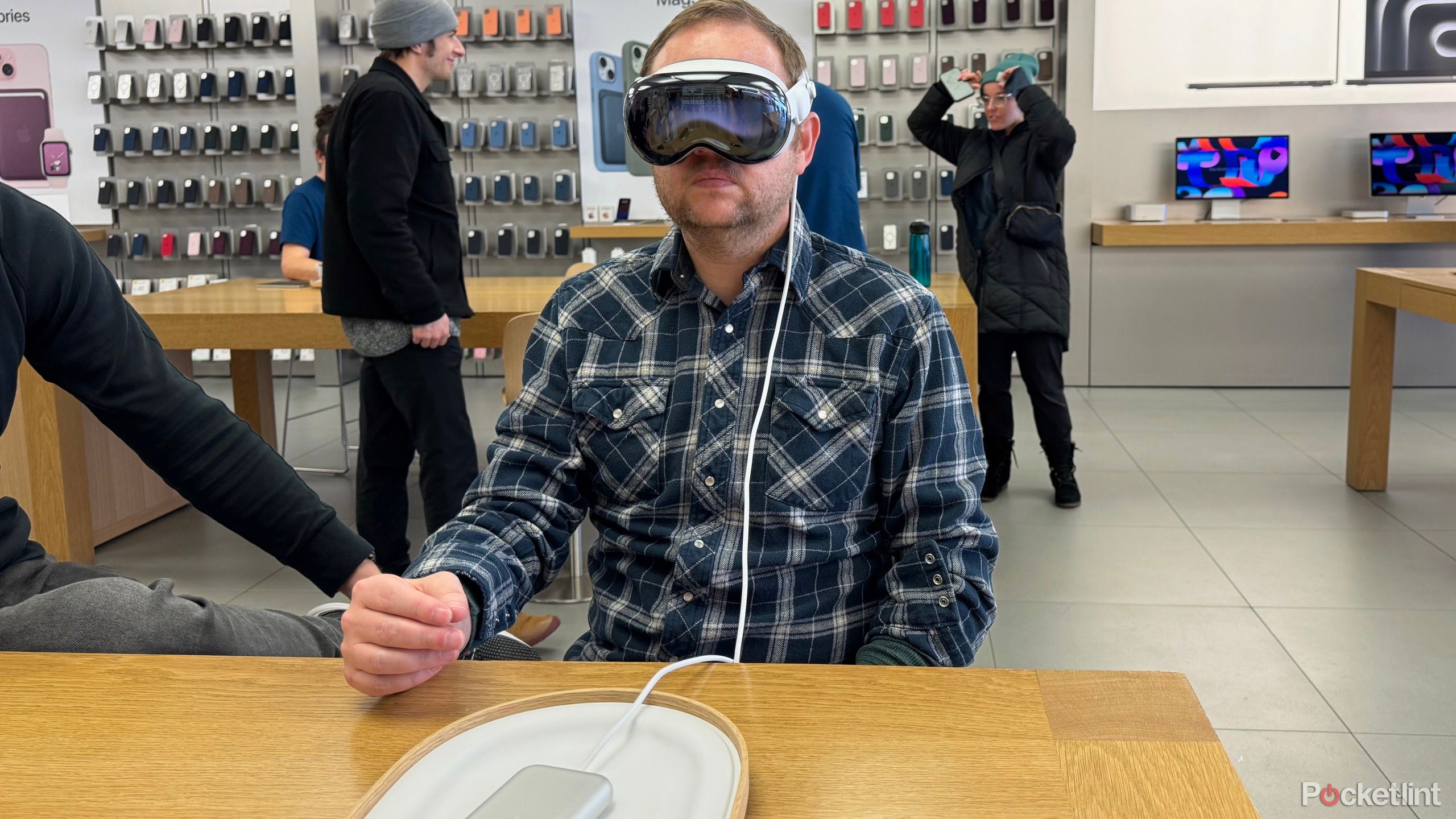Key Takeaways
- Even with strong prescriptions lenses and poor eyesight, there are some options for Apple VIsion Pro users like soft contacts or ZEISS lens inserts. And spoiler alert, I found it usable even without corrective lenses.
- Some apps on Apple Vision Pro, particularly iPad-based apps, are not optimized for the headset, resulting in blurry text that is difficult to read.
- As a first-generation product, the Apple Vision Pro has room to grow and improve through software updates and third-party app support.
Last night, I sat down to watch another episode of The Bear on Hulu on my Apple TV.
My television was already on, with the typical rows of apps on full display. Even though I had the Apple TV remote in my hand, I found myself moving my eyes across the rows of apps, then I stopped on the Hulu icon, and I almost waited for the app icon to grow and basically look animated like they do when they’re highlighted on Apple TV. I repeated this process two or three times — scanning all the apps with my eyes, stopping, then getting frustrated, only to realize that I need to use the remote (not my eyes) to select an item.
14 mind-blowing Apple Vision Pro features you might not know
Can’t decide whether to splurge $3,500 on the new Apple Vision Pro? These 14 features just might blow — or help make up — your mind.
For context, a few minutes prior to this confusing interaction with my Apple TV, I had Apple’s latest product attached to my face: Apple Vision Pro. I had spent the better part of the day setting it up, which included installing apps (and being disappointed when apps weren’t available), signing in to all my various services, and watching videos.
You navigate Apple Vision Pro by looking — at the app icon, button, text, whatever it is you want to interact with — on the high-resolution display inside the headset. You tap your thumb and index fingers together to select things and move around the interface. The headset tracks your eyes and what you’re looking at, so your eyes are the mouse and the pointer, if you will.
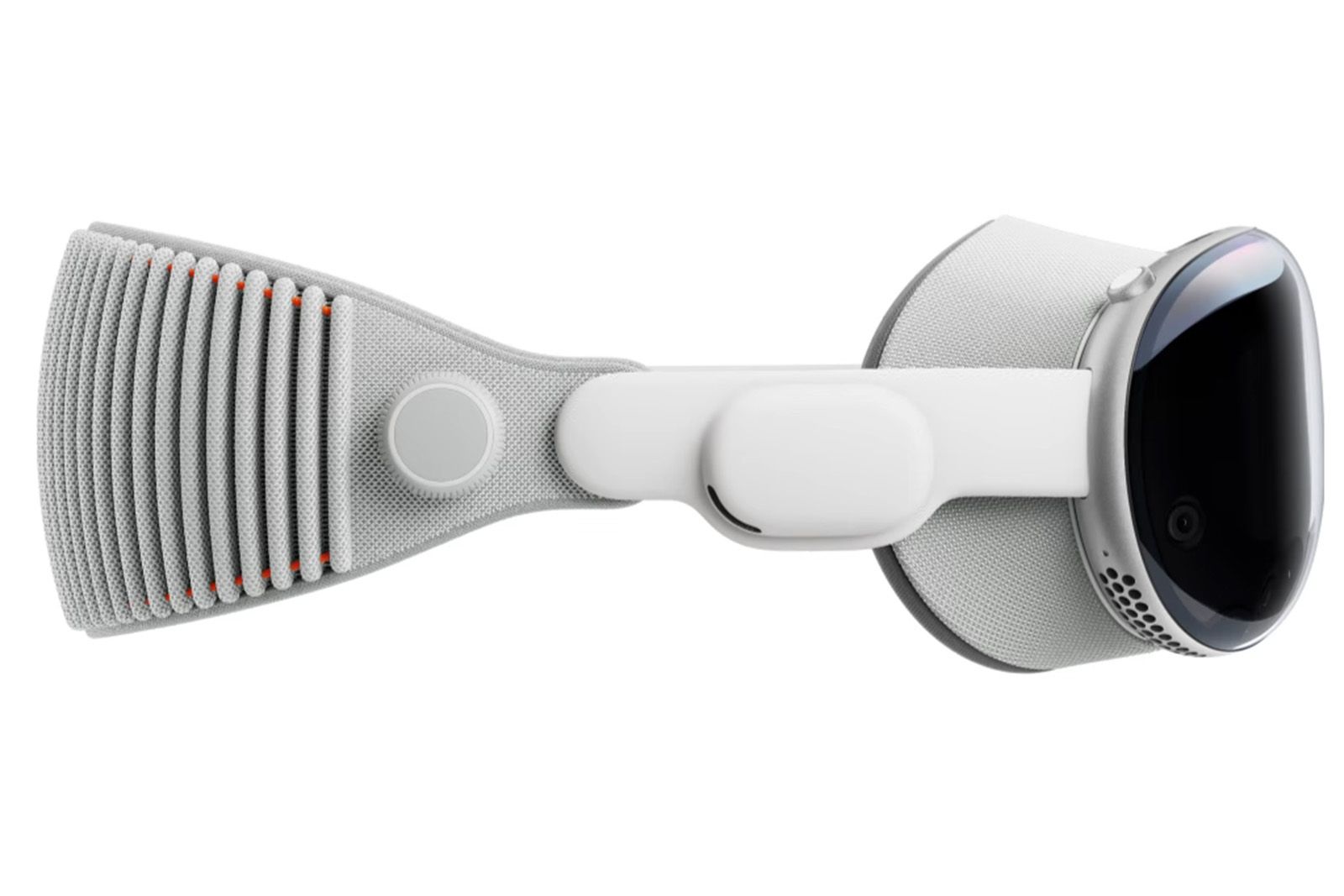
Apple Vision Pro
- Display Type
- Micro-OLED
- Storage
- 1TB / 2TB / 4TB
- Connectivity
- Wi-Fi and Bluetooth
- Tracking Technology
- LEDs and infrared cameras
- Processor
- Apple M2 + Apple R1
It sounds weird, but it’s incredibly natural and intuitive. So much so that I now want it on my Apple TV.
Why I thought I’d never use Apple Vision Pro
When Apple started taking pre-orders for the Vision Pro last month, I was curious if my eyeglass prescription was compatible with the ZEISS lens inserts. I ran my recent prescription through ZEISS’s prescription checker, only to be told the company can’t make lenses for my prescription. That was the end of that. I’d have to sit on the sidelines when Vision Pro came out, or so I thought.
Fast-forward a few weeks, and I came up with a plan to get contact lenses. I bought the Apple Vision Pro, and then I spent 30 minutes this morning at the eye doctor ordering soft contact lenses. This Apple support page states soft contacts are compatible with Apple Vision Pro, but hard contacts may cause issues. (I assume it may cause issues with eye tracking?) However, because my prescription is so strong, one of my contact lenses needs to be special ordered and can take anywhere from 2 to 4 weeks to arrive.
My doctor was kind enough to give me some temporary contacts that they say will be “good enough” to use in the interim with my Apple Vision Pro.
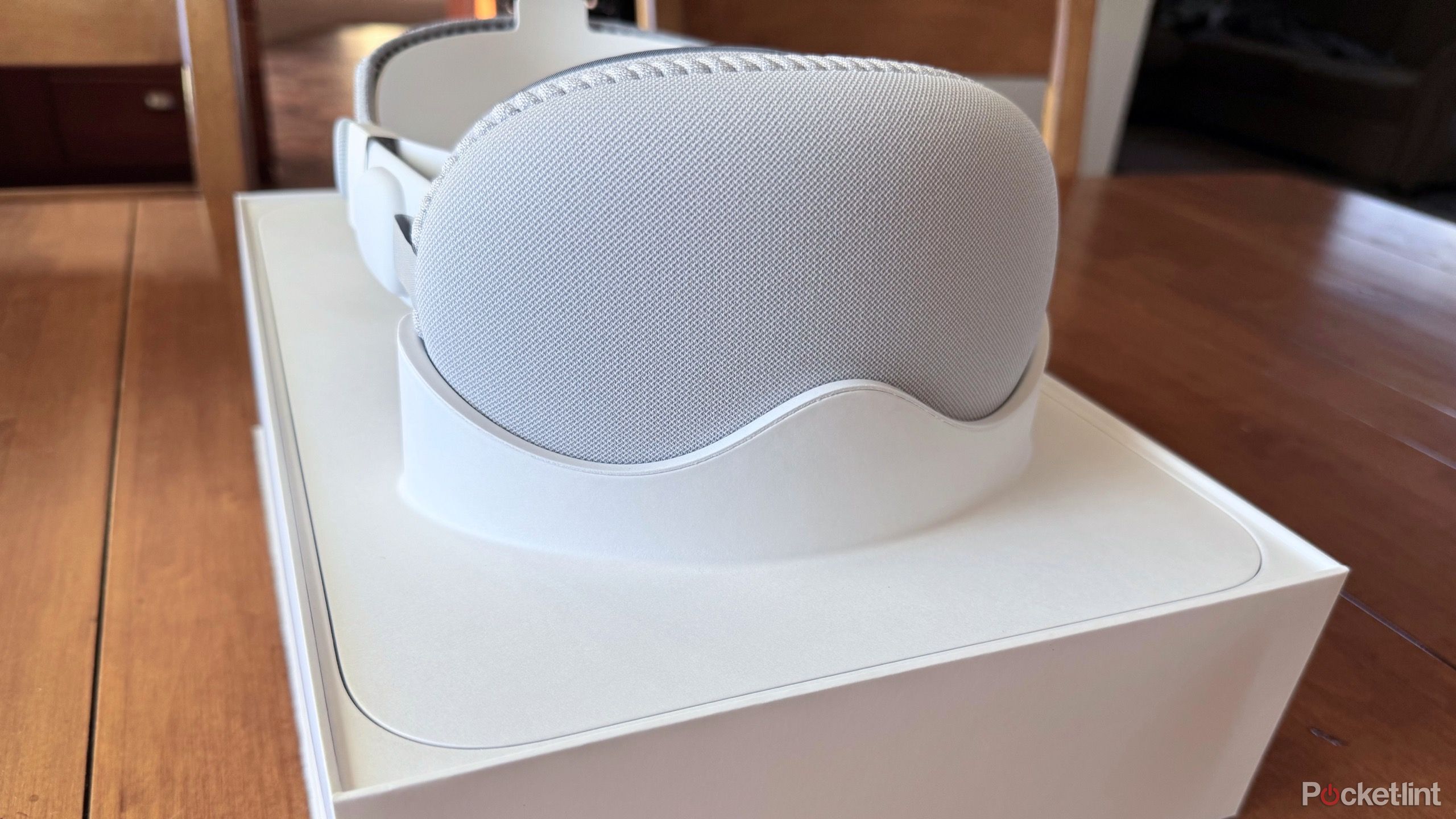 What surprises me about Vision Pro so far
What surprises me about Vision Pro so far
I picked up an Apple Vision Pro from an Apple Store last Saturday afternoon. I explained my vision predicament to the Apple Store employee: I wear prescription glasses that ZEISS can’t make lenses for, but I have an appointment to get contacts.
He wanted to check the fit of the headset to ensure the Face ID scans I went through during the ordering process were correct, and he asked if I still wanted to try the demo, even though it might not look right. Of course, I wanted to give it a try, though it was likely to be blurry.
“I was blown away … because I could very clearly see the text. To be clear, I have poor eyesight.”
As soon as the Vision Pro finished booting up, I was blown away — not because of the giant cursive Hello that I saw appearing across the Apple Store shelves right in front of me, but because I could very clearly see the text. To be clear, I have poor eyesight and thought any text in the headset would be difficult for me to read without wearing ZEISS lenses or soft contacts.
Sure, as we progressed through the demo, there were some items and objects that had that fuzzy look, which happens when you take your glasses off. But, for the most part, I could see everything presented in front of me.
At one point during my demo, I was tasked with opening Safari, and then my guide told me he’d normally point out how clear and crisp the text was on the webpage, but he assumed that wouldn’t be the case for me. I’m happy to say, dear reader, he was wrong. The font on the page was clear and legible. I could read it without squinting or using any of the other tricks I’ve learned to do without glasses.
“I can’t use the Meta Quest 3 without lenses or my glasses. Everything is way too blurry on that headset.”
So, the most surprising thing about Apple Vision Pro to me so far is the fact that I can use it without any vision correction. I can’t use the Meta Quest 3 without lenses or my glasses. Everything is way too blurry on that headset. That’s not the case with the Vision Pro, and I can only assume it’s because of the resolution of the displays Apple Vision Pro uses, and because the headset automatically lines up the lenses inside the headset with your eyes. All that’s a guess, but it also made sense to the guide who walked me through my Vision Pro.
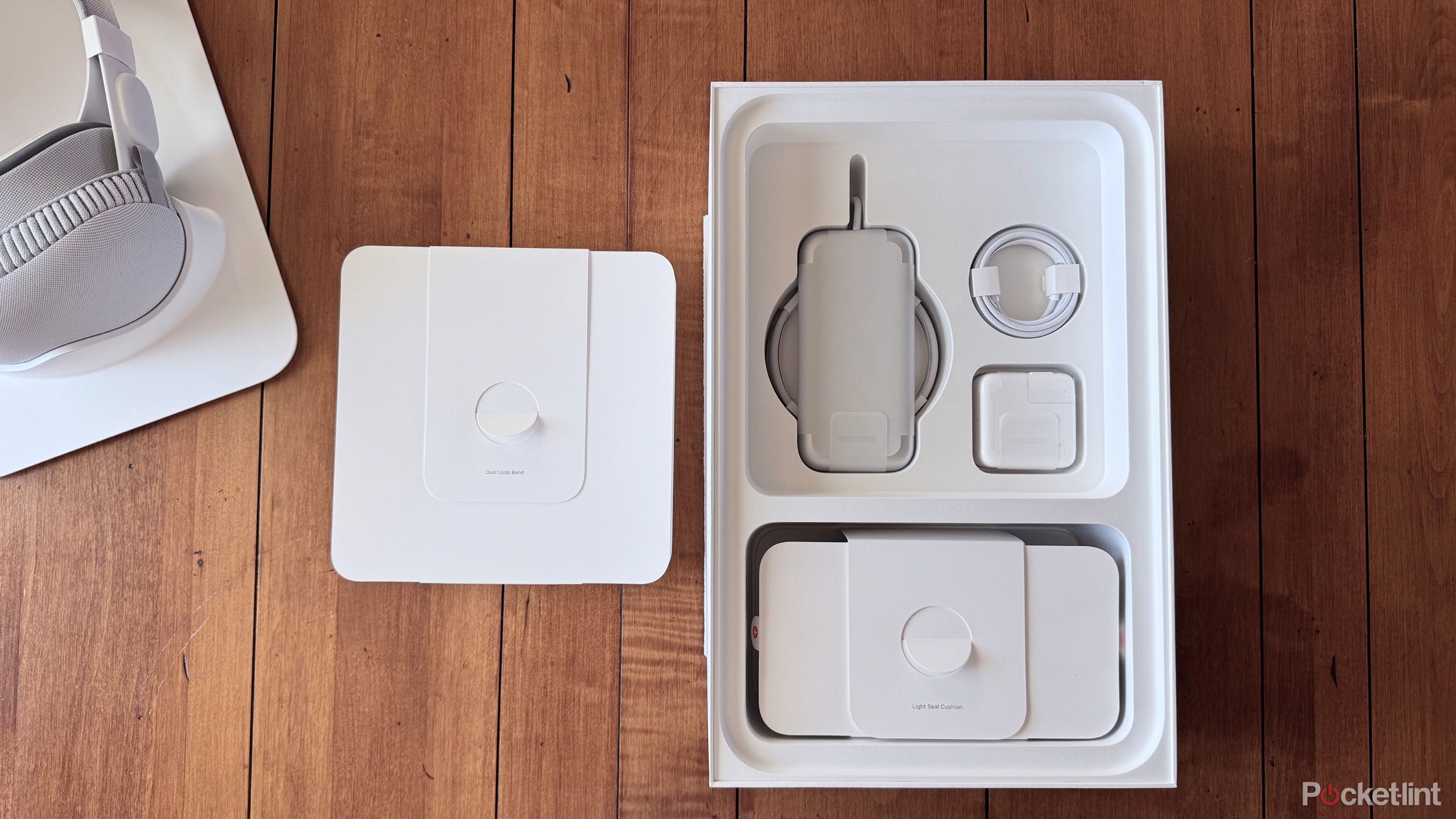 I can’t wait to dive into Apple Vision Pro
I can’t wait to dive into Apple Vision Pro
I spent the rest of the weekend using the Apple Vision Pro without any corrective lenses or contacts, but it was not a perfect experience. There are some apps, particularly iPad-based apps like Ivory, Slack or 1Password, that aren’t optimized for Vision Pro — so the text is blurry and hard for me to read at all times in those apps.
Watching YouTube videos using the Juno app or checking the forecast in Carrot Weather, however, are both examples of apps and tasks that I can do comfortably right now. Later today, I plan on trying the temporary contact lenses I was given this morning, and maybe things will get a little clearer. Maybe not.
I have a lot of thoughts and feelings about Vision Pro, most of them very emotional, but none of which I feel ready to stake a claim to just yet.
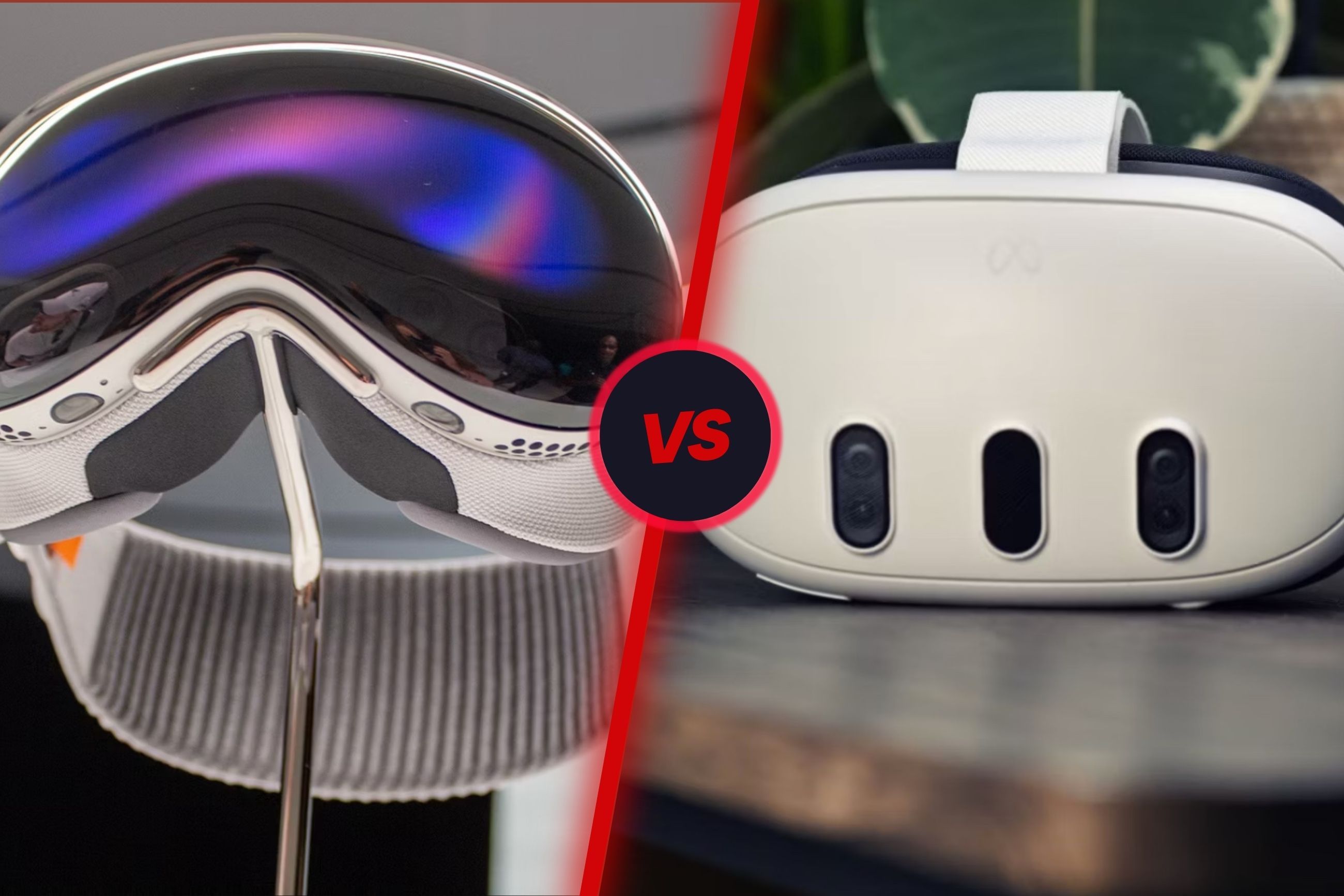
Apple Vision Pro vs. Meta Quest 3: What’s the difference?
Apple’s Vision Pro is a natural competitor for the highly touted Meta Quest 3. Let’s talk about the difference between the two.
What I will say right now though is: For the last 48 hours, I’ve found myself somewhat obsessed about the future of computing. Pinning apps and windows to walls or a specific room for easy access is something I’ve dreamed about doing since I was a kid. And it’s possible — right now — with Apple Vision Pro, albeit a prohibitively expensive headset, which very much feels like a first-generation product.
In many ways, the most exciting part of Apple Vision Pro is that it has just launched. It is first-gen and running VisionOS 1.0, leaving it plenty of room to grow and become an entirely different product than what it is now, not only through hardware but also through software updates from Apple and third-party apps adding support or creating use cases we haven’t even thought of yet.
It’s a future I can’t fully see yet, because, well, I don’t have the right contacts. But, once I do, I’m sure it’ll come into focus.
Trending Products

Cooler Master MasterBox Q300L Micro-ATX Tower with Magnetic Design Dust Filter, Transparent Acrylic Side Panel, Adjustable I/O & Fully Ventilated Airflow, Black (MCB-Q300L-KANN-S00)

ASUS TUF Gaming GT301 ZAKU II Edition ATX mid-Tower Compact case with Tempered Glass Side Panel, Honeycomb Front Panel, 120mm Aura Addressable RGB Fan, Headphone Hanger,360mm Radiator, Gundam Edition

ASUS TUF Gaming GT501 Mid-Tower Computer Case for up to EATX Motherboards with USB 3.0 Front Panel Cases GT501/GRY/WITH Handle

be quiet! Pure Base 500DX ATX Mid Tower PC case | ARGB | 3 Pre-Installed Pure Wings 2 Fans | Tempered Glass Window | Black | BGW37

ASUS ROG Strix Helios GX601 White Edition RGB Mid-Tower Computer Case for ATX/EATX Motherboards with tempered glass, aluminum frame, GPU braces, 420mm radiator support and Aura Sync


